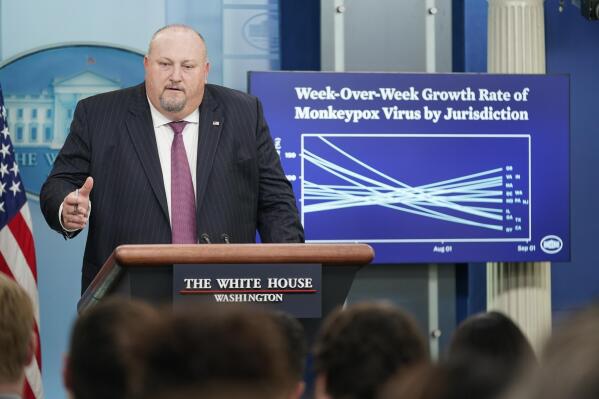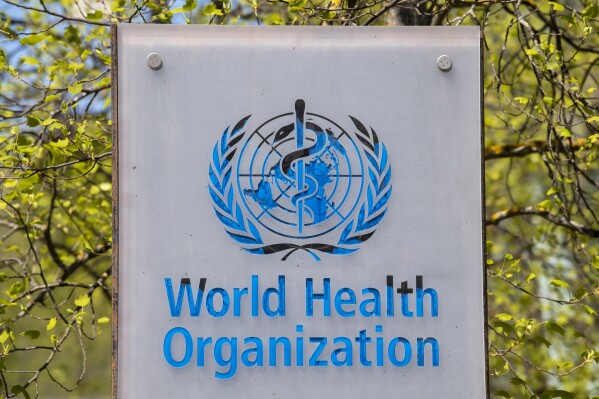Post falsely claims 850 died of myocarditis in Monterrey, Mexico, in two weeks

CLAIM: In a span of two weeks in late June, a total of 850 died due to myocarditis in the city of Monterrey, in Mexico’s northeastern state of Nuevo León.
AP’S ASSESSMENT: False. Authorities of the Health Ministry in Nuevo León told The Associated Press that it is not true 850 people died of myocarditis during that period. The post containing the erroneous information distorts figures provided by a state official who in late June said there had been 380 cases of deaths due to myocardial infarction — or heart attacks — not myocarditis, a condition where the heart muscle is inflamed.
THE FACTS: As authorities prepare to release an updated version of a COVID-19 booster in mid-September, some social media users are again spreading false and misleading claims about rare side-effects.
For example, social media users have shared a video in which a woman claims that 850 people died in Monterrey due to myocarditis in “two weeks.”
“The doctors are coming out and speaking to the public because nobody in the government or in the media wants to address these deaths, they say it was because it was a heat wave and they had no idea why people were dying,” the woman says in the video. “These doctors have grown some guts and they’re saying that these 850 deaths in these past two weeks in Monterrey are due to myocarditis, straight up myocarditis.”
Sonia Gómez, a spokesperson for the Health Ministry of Nuevo León, told The Associated Press it was not true that 850 people died due to myocarditis in two weeks in June.
Screenshots of news reports used in the video to support the false myocarditis claim actually refer to news reports that looked at a spike in deaths during June.
During that period, Nuevo León and other regions in northeastern Mexico experienced a heat wave that resulted in record-breaking temperatures.
In that context, local media in Nuevo León had previously reported about a statement made during an interview at a local radio station by Miguel Gallardo, head of Citizens’ Support of the Civil Registry Office. He had said that around 850 people had died due to heat strokes during the heat wave in Nuevo León.
For example, one of the images shows a segment from a news report by Reporte Indigo, a local media outlet.
The report included a statement made by Luis Orozco, the deputy attorney general of Nuevo León, who said that in late June the Medical Forensics Service, which examines deaths, reported an increase in the number of bodies it received.
Orozco said that in a period of two weeks the forensic service had received around 380 bodies. The official said there was no evidence the deaths were caused by heat strokes. Rather, he said, the cause of death of in most cases was attributed to myocardial infarction. He made not mention of myocarditis as a factor.
Following the interview by Gallardo, the state government released a press release in which it said that the official had spoken in “personal capacity” and that the state “rejected” the figures provided by the official.
After the statement made by Gallardo, the head of the Civil Registry office in Nuevo León, Abelardo García, also rejected the figures provided by Gallardo, his subordinate, and said his office did not have such information.
The video that circulated shows two more screen grabs of two different news reports which talk about the “controversy” over the statements made by Gallardo. The reports do not provide any evidence or refer to official figures linking the death of 850 people dying due to myocarditis in a span of two weeks.
Heart attacks occur when an artery that sends blood and oxygen to the heart is blocked, according to information on the Mayo Clinic website. Risk factors can include age, tobacco use, family history of heart attacks, diabetes and more.
Myocarditis is inflammation of the heart muscle or myocardium. The inflammation can reduce the heart’s ability to pump blood.
“Infection with a virus is one cause of myocarditis. Sometimes a drug reaction or general inflammatory condition causes myocarditis,” says an article published by Mayo Clinic on its website.
According to AP reports, research that has searched for adverse outcomes associated with COVID-19 vaccination has not found a link between the vaccines and heart attacks. For example, an October 2021 study from the Journal of the American Medical Association which surveilled over 10 million vaccine-eligible individuals found no such association with the COVID-19 shots.
U.S. health authorities have said that cases of myocarditis after vaccination have “rarely been reported.”
___
This is part of AP’s effort to address widely shared misinformation, including work with outside companies and organizations to add factual context to misleading content that is circulating online. Learn more about fact-checking at AP.



